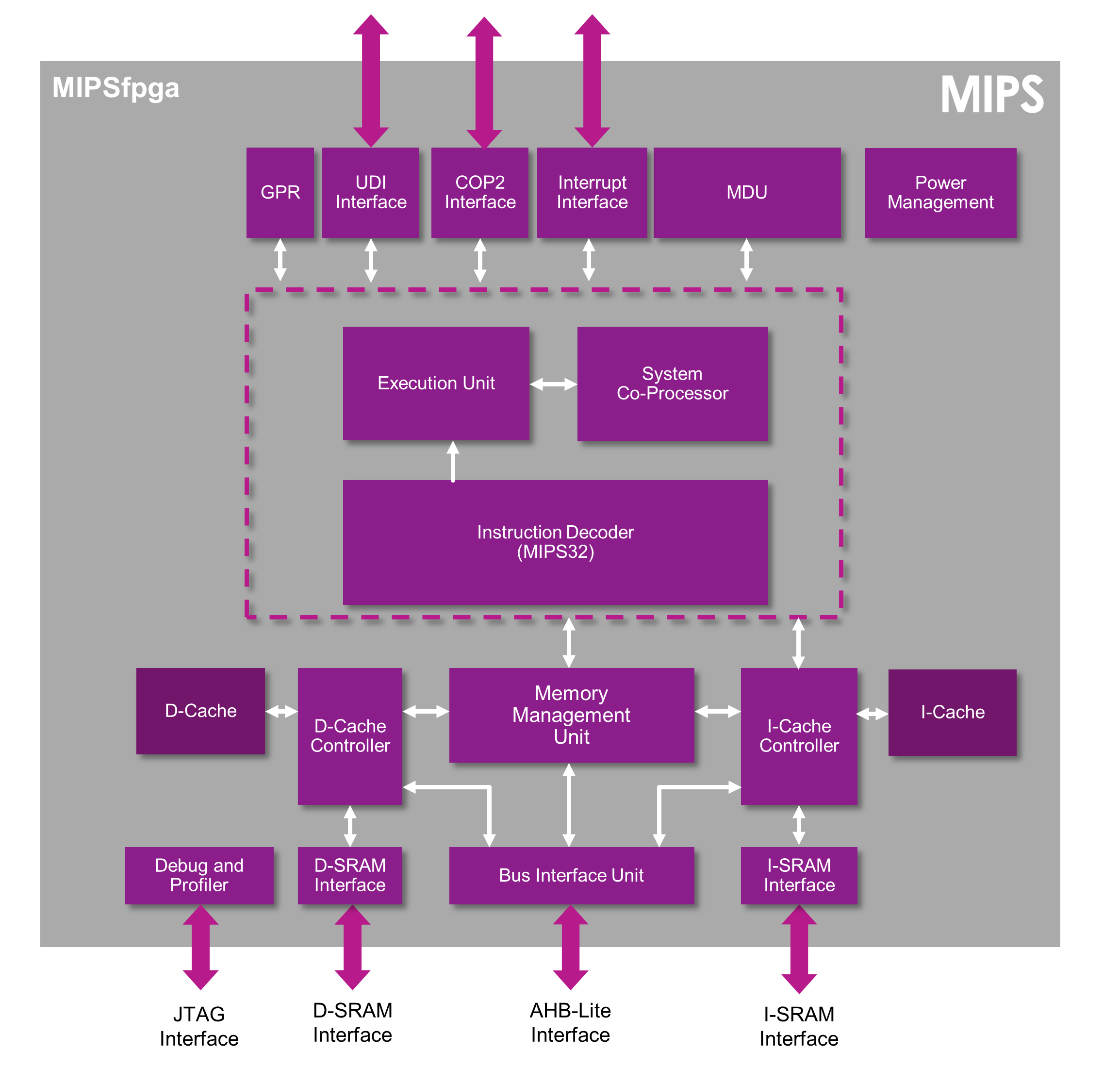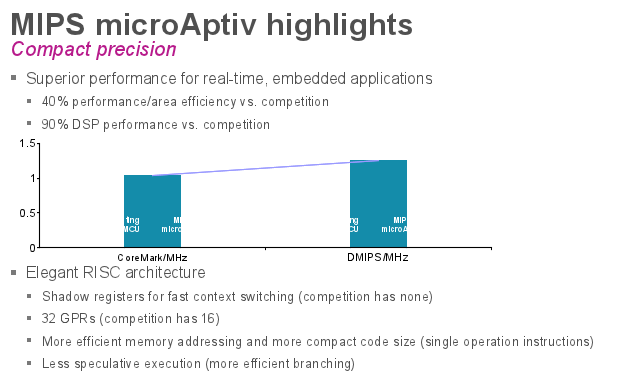Imagination To Give Universities Free And Open Access To MIPS Architecture
Today, Imagination announced that it's going to open up its MIPS architecture for universities interested in teaching their students how to build microprocessors as part of the company's Imagination University Programme (IUP) called "MIPSfpga." Through this program, Imagination is offering a fully-validated MIPS CPU RTL (register transfer language) along with all the needed teaching material in a complete package.
If adoption is high (and it could be) we could see new generations of students that know how to program MIPS processors. This could help Imagination in two ways. The company itself will have access to a wide base of potential employees, and it could also see a bigger push for adoption of MIPS processors within other companies where those students may find future employment.
Imagination isn't actually open sourcing its IP here. The company is still an IP-vendor after all, and open sourcing the IP would leave it with no revenue. The license does give some freedom to university professors, though. They can use the architecture as they wish (which includes using a simulator), but they can't actually build a silicon chip with it. The universities can go as deep under the hood as they like, but if they want to patent certain changes to the architecture, they will have to talk to Imagination first.
What the universities will get includes:
a MIPS-based MicroAptiv CPUMIPSfpga Fundamentals set of teaching materials (available soon)MIPSfpga Advanced - even more in-depth teaching materials (available later)
CPU architecture is usually taught in courses for electronic engineering, computer science, and computer engineering. So far, professors and students haven't been able to fully study the obfuscated code of the MIPS architecture, which has remained proprietary until now. Imagination is now offering universities the opportunity to study a MIPS CPU from the ground up, free of charge.
There are other CPU architectures such as RISC-V that are fully open source, but these haven't yet enjoyed wide adoption. Until they are used for commercial purposes, they probably only offer so much value as a classroom tool, either.
Get Tom's Hardware's best news and in-depth reviews, straight to your inbox.
MIPS also has a strong academic background, having been invented at Stanford University in the early 1980s and having been used since as a teaching architecture of choice because of its simpler RISC architecture.
"It's been more than 30 years since we created the MIPS architecture at Stanford University. I am pleased to see MIPS rejuvenated under Imagination's care, and to see Imagination rolling out this exciting new program that brings MIPS back to academia in a big way. With its pure RISC architecture based on efficiency and simple extensible design principles, MIPS is an ideal architecture for teaching and studying CPU design. Professors and students alike can benefit from the ability to study MIPS RTL code and explore a real MIPS CPU."– Dr. John L. Hennessy, Office of the President, Stanford University
These days, RISC CPUs are much more complex than they used to be, which is why many universities have complained that mainstream CPUs are too complex for university classes. This is why Imagination started its own campaign to talk to dozens of universities across the world and get feedback on what an appropriate CPU design would look like for the purposes of teaching. That's how the company got to use a simpler version of its microAptiv CPU (used in microcontrollers).
With the materials they will get from Imagination, students can learn to develop their own CPU and then take it through debug while it's running on an FPGA platform.
The MIPSfpga has already been adopted by universities such as Harvey Mudd College, Imperial College London, University College London, and the University of Nevada.
To access the MIPSfpga, academics will have to register to the Imagination University Programme. Then, starting in June, they will get a click-through agreement, and more teaching material will be available later.
Follow us @tomshardware, on Facebook and on Google+.
Lucian Armasu is a Contributing Writer for Tom's Hardware US. He covers software news and the issues surrounding privacy and security.

